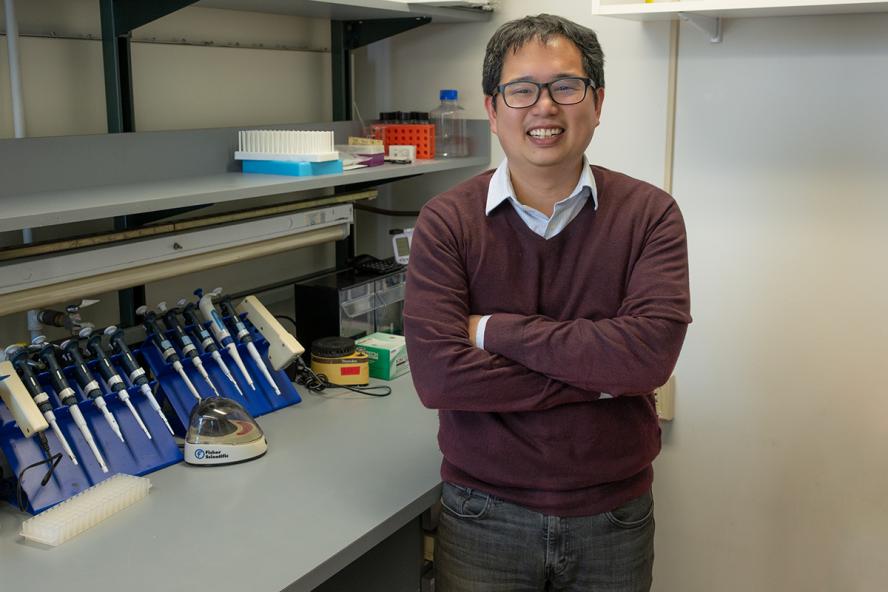Former postdoctoral fellow at Tufts University School of Medicine, Yi-Pin Lin, Ph.D., MG15 (he/his), has joined the Department of Infectious Disease and Global Health at Cummings School of Veterinary Medicine at Tufts University, working with Tufts University Lyme Disease Initiative, a program with a mission to eradicate Lyme disease by 2030.
“I have been impressed with the vision of Tufts University in making an impact into the theme of One Health. Tufts University established a cross-campus, inter-collegiate collaboration, Tufts Lyme Disease Initiative. This initiative recruits excellent scientists and lecturers working on different perspectives of Lyme disease teaching and research. That makes Tufts one of the best institutions to perform pioneering, interdisciplinary research on Lyme disease and other zoonotic diseases.”
“Coming back to Tufts allows me to apply what I’ve learned at different stages of my career to what I’m researching now,” he says. “Everyone is working on different perspectives of Lyme disease—microbiology, immunology, in humans and in animals. I work on wildlife, ecology, and evolution. I’m happy to join this initiative, it’s an exciting collaboration.”
Dr. Lin grew up in Taiwan, earning his B.S. at National Cheng Kung University and M.S. at National Taiwan University. The SARS outbreak in 2003 sparked his interest in pathogens affecting animals and humans. He moved to the United States in 2005 to pursue his Ph.D. at the College of Veterinary Medicine at Cornell University, researching how the Leptospira pathogen attaches to animal cells and tissues, causing organ failures.
He continued his postdoctoral training as a microbiologist at UMass Chan Medical School. He completed his degree at Tufts University School of Medicine, studying the pathogenesis of diseases that impact humans and animals under Dr. John Leong. He focused his work on the Lyme disease bacteria.
Shifting into public health as a research scientist and assistant professor at the Wadsworth Center in the New York State Department of Health and SUNY Albany, Dr. Lin studied how the Lyme disease bacteria spreads in nature by wildlife.
“At Cornell, Tufts Medical School, and New York State, my research experience and career cover the three big components of an important concept, One Health,” explains Dr. Lin. “One Health focuses on the study of any disease from the perspective of human health, animal health, and environmental health. The main focus of Tufts University is the One Health initiative, exactly what I learned in my career path—it perfectly fits all these things.”
At Tufts University Lyme Disease Initiative, Dr. Lin is researching how Lyme disease bacteria transmit between animals, how certain reservoir animals carrying the pathogen spread it to humans, and how the bacteria can be removed to prevent the disease from spreading, also called the Reservoir Targeting Approach. He describes this approach as “working from nature to solve problems of human disease.”
Dr. Lin also mentors graduate students, teaches a microbiology course, and looks forward to hiking around Tufts’ [Cummings School’s] beautiful campus this spring.
“I like being back in school with students and in academia, teaching and working with their research projects,” says Dr. Lin. “I feel this place is my family and home. I had a wonderful experience in medical school in the microbiology department. The culture of Tufts is very welcoming.”
